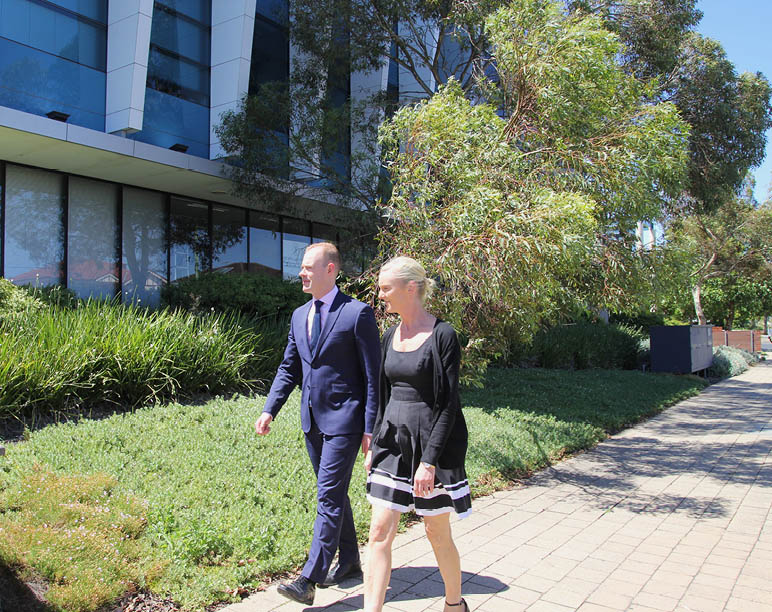This organisation either had no values or its values were well and truly buried such as to create deep systemic issues, resulting in fraud and theft. It is an extreme example of what can go wrong. Of greater prevalence and concern are the subtle weakening of like organisations where values are relatively unimportant and are not 'lived out', commonly resulting in ineffectiveness, low morale, poor productivity, conflict or dysfunction and delivering less than optimal outcomes.
Probably all NFP's have values in their constitutions or policy documents where perhaps they are: 'done and dusted, best forgotten'. Some go further and have their values displayed on boardroom walls, looking like bland wallpaper. Some are even good at promoting their values. But, promoting them is one thing. Living them out so they inform and shape all organisational attitudes, decisions and behaviours is quite another.
Organisational values are core beliefs which are immutable, inviolable and non-negotiable. As such, they are to be embraced and actioned by everyone within an NFP. They should give the organisation focus and direction toward its better future. They are to act like super glue, holding the NFP together to reveal its true identity. External stakeholders should be made aware of the NFP's values and depend upon them.
If the values of any NFP are to become valuable at all, essentially they must be re-captured in terms of importance, be 'lived out' day by day, and become part of the heart and soul of the organisation. How so?
One of the most diabolical things that should not be done is to download a list of 100 popular corporate values (undoubtedly, including the ubiquitous word: 'integrity'!), and have the full team select their ten top preferred values. Instead, the leaders first need to agree upon five core values by asking:
- Which beliefs form the super glue holding our NFP together?
- Which beliefs go to the very essence of our NFP's identity, as evidenced in day by day activity?
- Which beliefs impact our key external stakeholders giving them value and benefit, instead of beliefs merely providing us with an internal benefit?
- Which beliefs best serve our mission and purpose, contribute to the fulfilment of our vision, and shape our culture as an NFP?
But, words are words. How can the values be remembered and actioned? This is where the leaders must become creative. Each value is to come alive and be of practical effect, as follows:
- First, create a short descriptor and an image or picture for each value. With a value of 'character', say, the descriptor might be: 'stand firm" and the picture might be of an individual standing on a cliff top, with legs firmly planted, and looking out. People can then visualize and relate to that value
- Secondly, briefly describe what this value of 'character' actually means within the organisation so as to give it a life of its own, within its own context. For example: "We stand firm. For us, this means that we will not compromise our ethical standards or our honesty and integrity, never, ever. This goes to our character."
Having done this in words and pictures with all five values, they can be distributed far and wide within the NFP for additional input. The purpose is for everyone to suggest "I" statements, giving the practical outworking of each value. In this way, the values become well entrenched to intentionally shape the organisation and everyone in it. The best five "I" statements, as judged by the leaders for each of the five values, then become a practical, important part of each value. The following "I" statements are illustrative for a value of 'character':
"As a result:
- I will always be fully candid with my customers, my colleagues and others on a daily basis
- I will speak and write only that which is 100% the truth and never lie or deceive others
- I will be open and transparent in my words and actions so that my customers, my colleagues and others come to trust me implicitly and know that I am always dependable
- I will always do the right thing by my customers, my colleagues and others, and always act ethically
- I will always be true to myself and honour and respect all others".
Having brought values to life in this way, an NFP might then make its values prominent by:
- The five values, pictures, descriptors and "I" statements being plastered around the walls of the NFP as a constant reminder
- Meetings of the board, leaders and team members becoming focussed on the values and any remedial action for adherence, with the CEO becoming the 'overseer of values' as part of their job description and reporting regularly on organisational values
- Recruitment of new people being determined by their values and fit within the organisation and not just by their antecedents and qualifications (ask them at interview about the three personal values which sustain them in life)
- Performance being reviewed for adherence to values
- People being exited for incompatibility with organisational values
- Relationships with external stakeholders being based on congruity with values
- Values being disseminated via promotional material, on social media and on web sites.
In these ways, everyone will be constantly reminded and held to account for adherence to values in respect to their attitudes, words, behaviour and decisions. The NFP will be shaped and transformed as the five values are 'lived out' day by day.
CEO's, does your NFP value its values? If not, maybe try some super glue!
The information contained in this article is intended to be of a general nature only and should not be relied upon as legal advice. Any legal matters should be discussed specifically with one of our lawyers.
Liability limited by a scheme approved under Professional Standards Legislation.
Mitchell is the Managing Principal of our law practice.
He is an Accredited Specialist in Commercial Law (accredited by the Law Institute of Victoria). He also deals with areas of Employment Law, Wills & Estate Planning and Probate. For further information, contact Mitchell on his direct line (03) 8561 3318.








